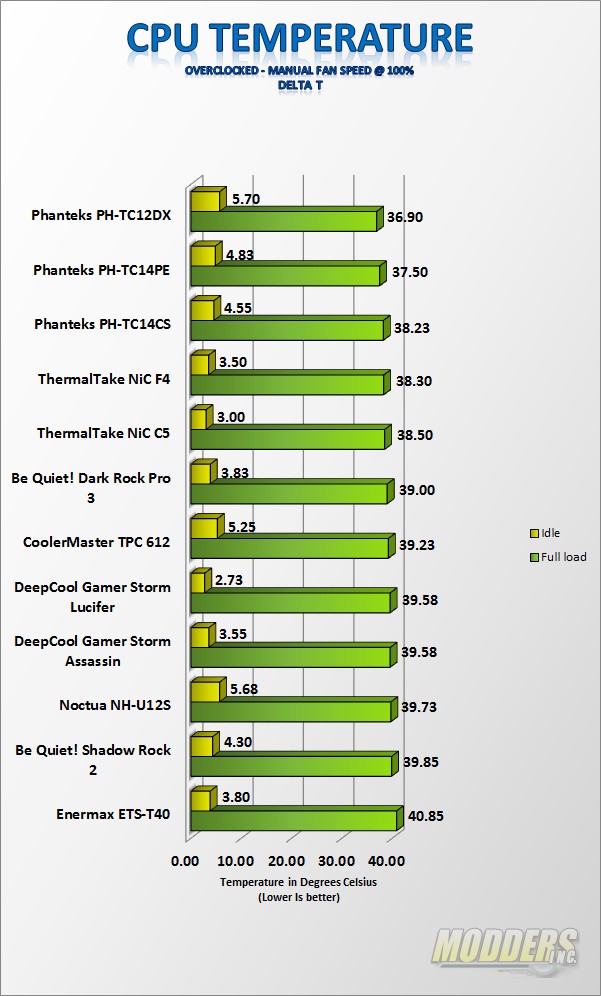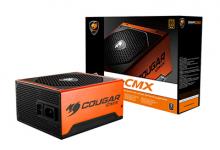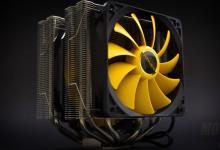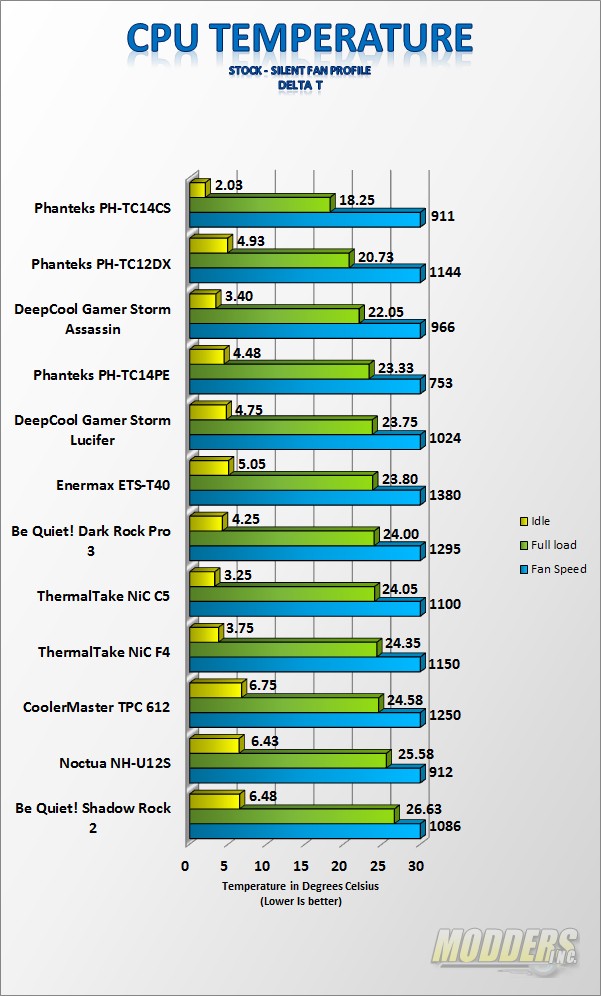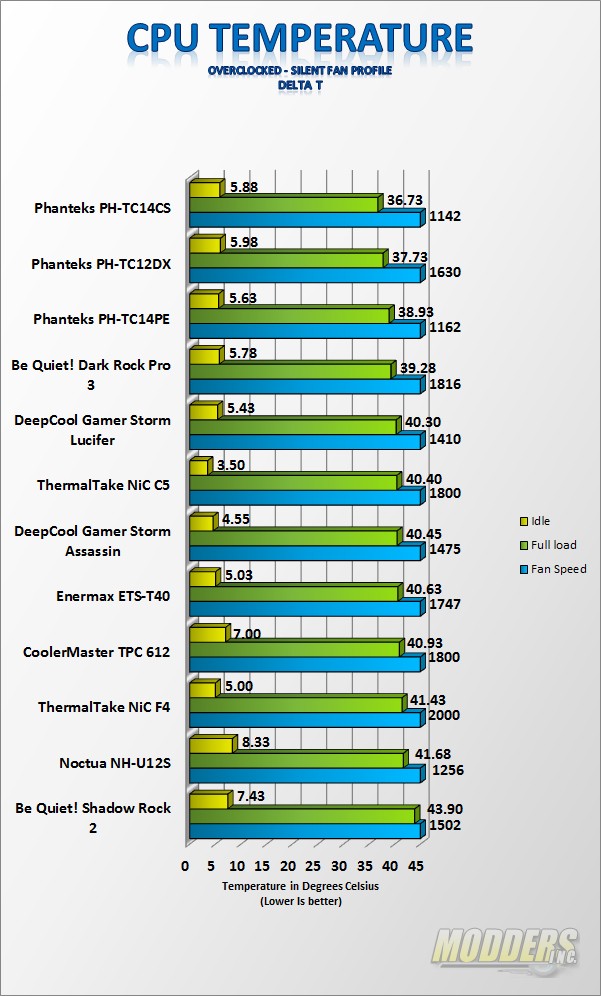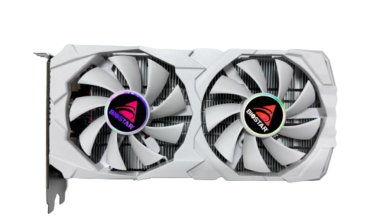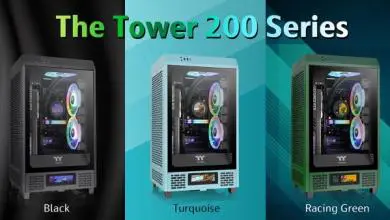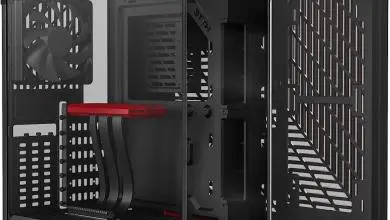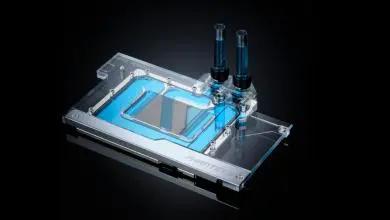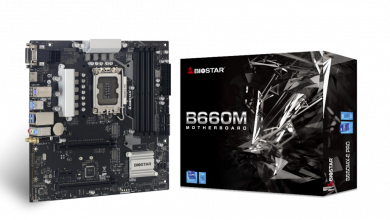Twelve CPU Air Cooler Roundup
Test System and Benchmark Results
Ambient temperature monitored at the case intake and temperature Delta was used. Ambient room temperature was kept between 21° C and 23° C. All case and heat sink fans were benchmarked with fan control settings disabled and running at 100% unless otherwise specified. Intel integrated video is utilized to eliminate additional ambient heat source from discrete graphics cards. AIDA64 System stability test was used for the CPU load test. CPU, FPU and Cache were stressed in the testing. Idle temperatures were obtained by averaging the CPU core results after 15 minutes of inactivity after boot up. Temperatures are averaged (last minute) from individual core temperature results monitored by AIDA64 after 15 minutes. Results marked “0″ means thermal limit was reached and the CPU was throttled and thus the results were discarded. Stock settings have all power saving features enabled in the motherboard with Vcore set static to “AUTO” and set to “High Performance” in the OS. Overclocked settings have Vcore voltage manually set to 1.248V at 4.50GHz with EIST disabled. All tests were taken at least three times to get the final result.
The products were tested as the consumer would get them. Meaning, if the manufacturer includes one fan in the box, that is how the product was tested. The only exceptions to this were the Thermal Paste. To eliminate any variables in thermal paste between manufactures, we chose to use the Noctua NT-H1. The other exception was with the Phanteks PH-TC14PE. The kit included two 4-pin PWM fans however, the included splitter was for 3-pin VRM fans and could not be connected using the supplied parts. I used the 4-pin PWM splitter from the Phanteks PH-TC12DX.
Results are not sorted by heatsink size, number of fans, or number of fins. They are sorted by the lowest LOAD temperature.
| Processor | Intel Core i5-4670K (Retail) |
| Motherboard | Gigabyte GA-Z87X-UD4H |
| Memory | Kingston HyperX Beast 2400 MHZ |
| Drive | Samsung 840 EVO 250 GB |
| Video Card | Intel Integrated Graphics |
| Thermal Compound | Noctua NT-H1 |
| Case | Cooler Master Cosmos SE |
| Power Supply | NZXT Hale 90 V2 1000 watt |
| Operating System | Windows 7 x64 Pro |
First up is the Stock Silent test. For this test the Gigabyte GA-Z87X-UD4H was set to Auto for the vcore and the silent profile was selected for the CPU Fan. Case fans and other accessory fans were set at 100%. The Phanteks PH-14CS takes the top spot with an 18.25°C rise above ambient temperature at load while keeping the fan speeds under 1000 RPM. Fan speeds are included in the chart to show how fast the fans were spinning in the silent profile for each CPU cooler to obtain the results. Less than three degrees separates the next five coolers, with a total range of 8.38°C between first and last.
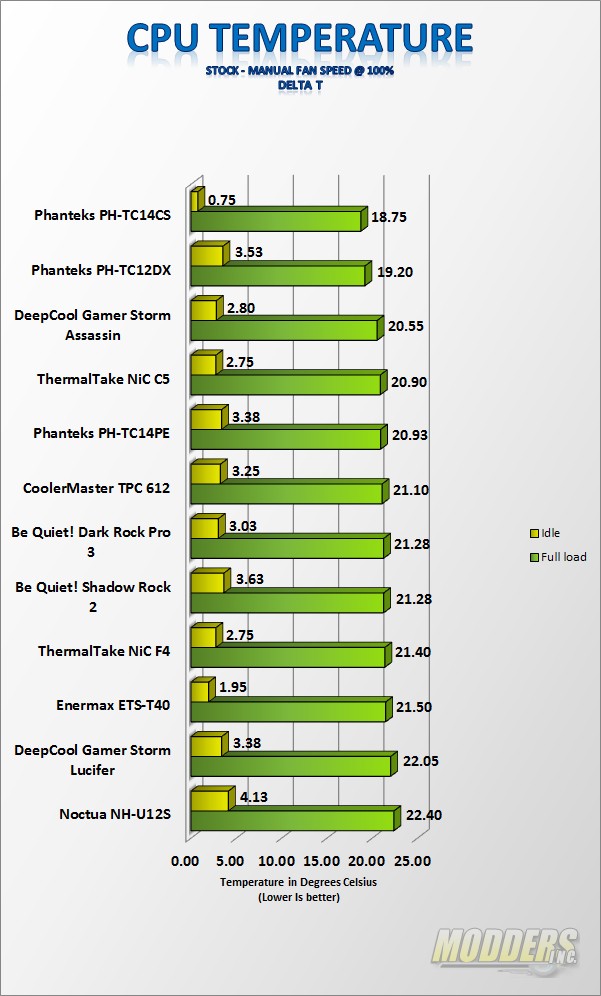
The Intel i5-4670K was pushed up to 4.5 GHz at a vCore of 1.248. The silent profile was again set in the BIOS for the CPU fan. Here the CPU coolers really get to stretch their legs as 7°C separates the field. The Phanteks CPU coolers take the top three spots.
